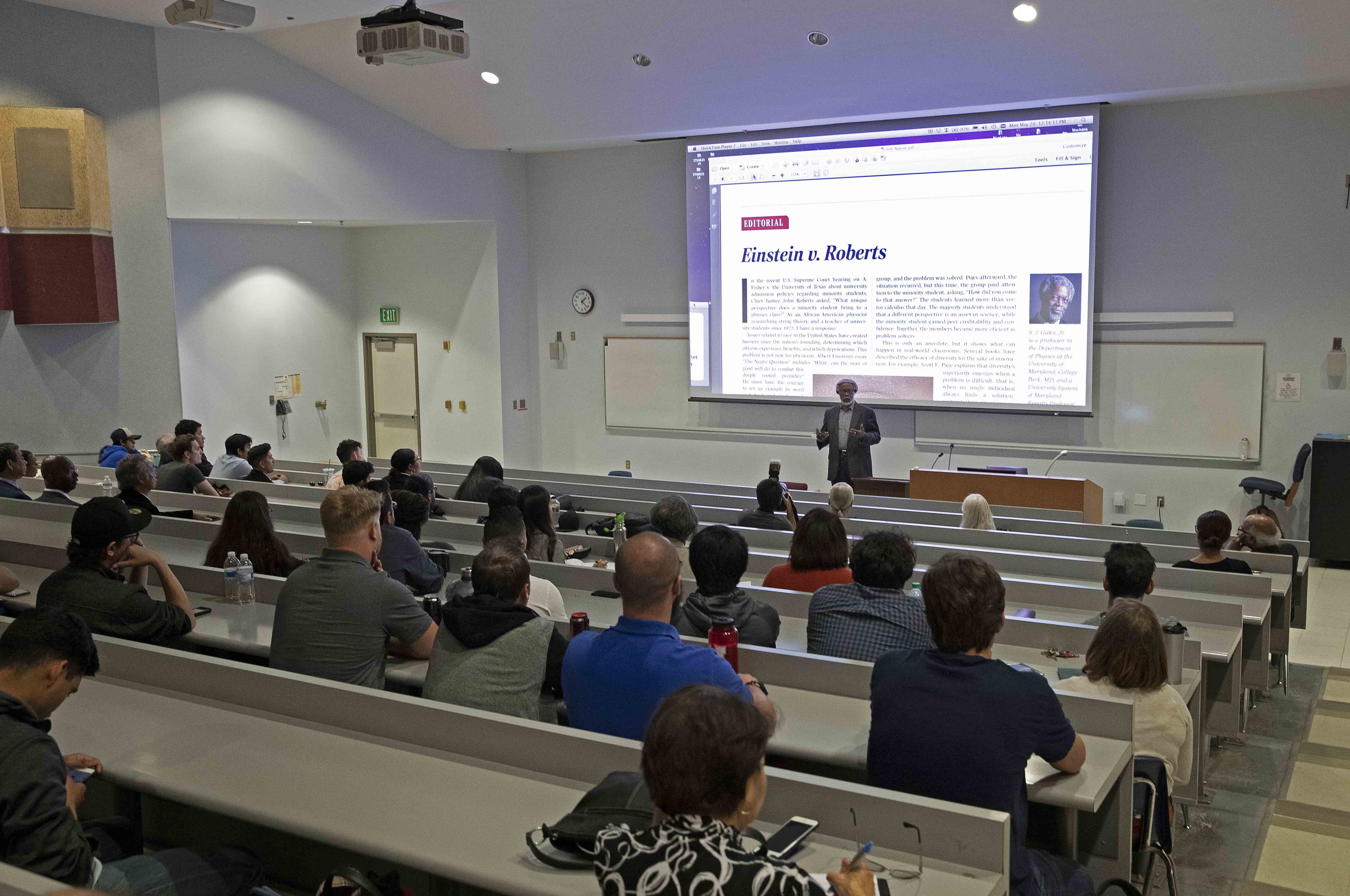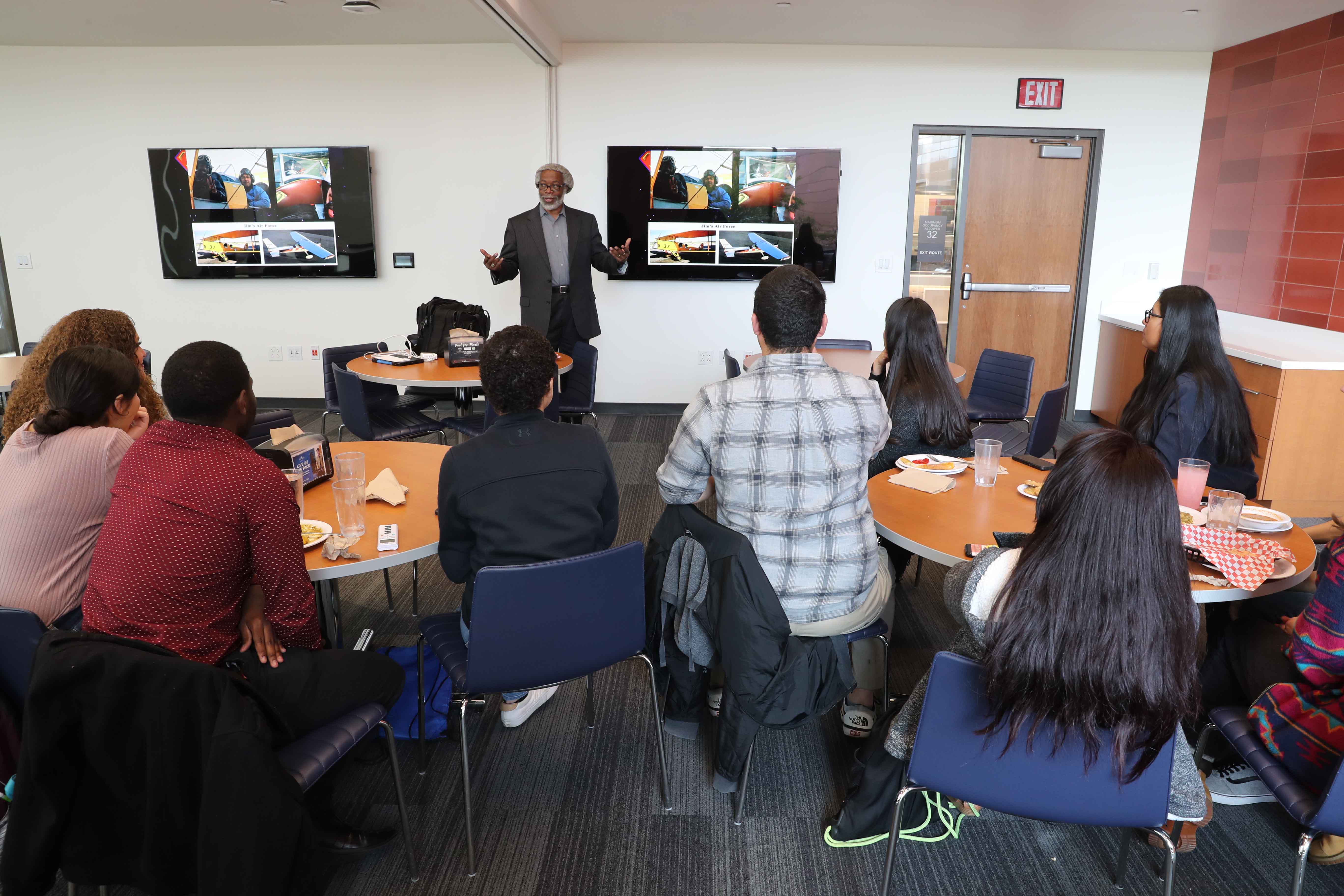Joe Gutierrez Office of Strategic Communication (909) 537-5007 joeg@csusb.edu

Sylvester James “Jim” Gates, a theoretical physicist and the Ford Foundation Physics Professor and Affiliate Mathematics Professor at Brown University, visited Cal State San Bernardino on May 20 to present his lecture, “Einstein v Robert,” which focused on why diversity makes excellent science.“As you know our core values include excellence, diversity and harmony. Today we are in for a treat as we will hear a wonderful talk consistent of our core values,” said Sastry Pantula, dean of the College of Natural Sciences, in his opening remarks. “Every day we hear more and more about the increasing need to improve the success of all of our students, especially our students from underprivileged populations, students who are the first in their family to go to college, and students in STEM. … It is clear we need to improve graduation and retention rates in STEM, especially among underprivileged students and to create a more welcoming, inclusive atmosphere in science.”Gates, who was the first in his family to attend college, discussed his 1995 paper “Equity vs. Excellence: A False Dichotomy in Science & Society,” which he wrote in response when a young scholar of color asked him about university admissions and if we should be concerned about diversity. He said he spent two years thinking about the issue regarding diversity, particularly in the scientific, engineering and technical fields.“When you ask me a question, no matter how far it is removed from my science, or science in general, my response is to first think about: can I find something in nature by which I can answer your question? So when I had this question about diversity, my first question was: do we see diversity in nature and what does it do?” he said.Gates discussed the ways he approached and developed his essay, which included the topic of merit.“What exactly is merit? And I know that on college campuses, this whole issue of diversity often gets tied up with the question of who is meritorious and who is not,” Gates said. “When you hear these arguments about merit, non-merit, you need to be aware that there are much more subtle influences that are there.”Over 20 years after he was first asked about diversity and college admissions, and a number of essays later, this journey resulted in a citation by the United States Supreme Court in the case of Fisher v. University of Texas, which according to Gates, was the last time the Supreme Court looked at the issue of college admissions.Gates earned a bachelor’s in physics as well as math, and a doctorate in physics from the Massachusetts Institute of Technology. He was the chair of the President’s Council of Advisors on Science and Technology that produced a document called “Engage to Excel: Producing One Million Additional College Graduates with Degrees in Science, Technology, Engineering, and Mathematics.”In 2011, he received the National Medal of Science, and in 2013, he was elected to the National Academy of Sciences (NAS) and was elected to the council of the NAS.

